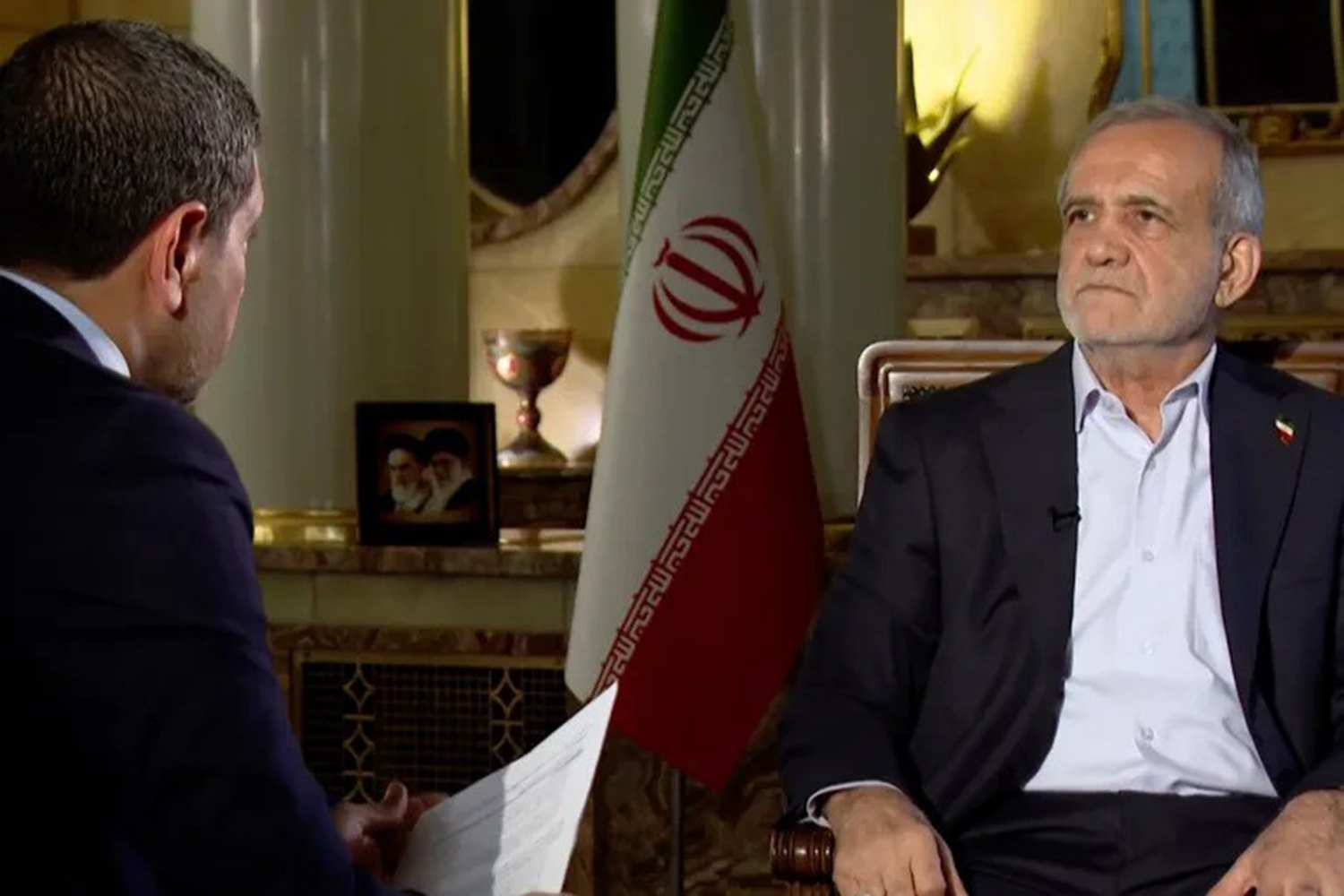Iran’s Stance on Potential Conflict with Israel
Iran’s President Masoud Pezeshkian has made it clear that his country is prepared for any potential conflict with Israel, expressing skepticism about the ongoing ceasefire between the two nations. He also reaffirmed Iran’s commitment to its nuclear program, emphasizing that it will continue for peaceful purposes despite international pressure.
Pezeshkian shared these remarks during an exclusive interview with Al Jazeera, marking his first televised appearance since the 12-day conflict with Israel ended last month. During this period, the United States intervened on Israel’s behalf, launching strikes on Iran’s nuclear facilities. The comments come at a time when Western nations are seeking solutions to address Iran’s nuclear ambitions, especially after reports indicated that the damage caused by the strikes was less severe than initially claimed by Washington.
“We are fully prepared for any new Israeli military move, and our armed forces are ready to strike deep inside Israel again,” Pezeshkian stated. He expressed doubt that the ceasefire would hold, noting that Iran is not optimistic about its long-term stability.
“That is why we have prepared ourselves for any possible scenario and any potential response. Israel has harmed us, and we have also harmed it. It has dealt us powerful blows, and we have struck it hard in its depths, but it is concealing its losses.”
Impact of the Conflict
The recent conflict resulted in significant casualties. Over 900 people were killed in Iran, many of them civilians, while at least 28 individuals lost their lives in Israel before the ceasefire was established on June 24.
Pezeshkian emphasized that Iran will continue its uranium enrichment program, despite opposition from the international community. He stated that the development of Iran’s nuclear capabilities will occur within the framework of international laws.
“[US President Donald] Trump says that Iran should not have a nuclear weapon and we accept this because we reject nuclear weapons and this is our political, religious, humanitarian and strategic position,” he said. “We believe in diplomacy, so any future negotiations must be according to a win-win logic, and we will not accept threats and dictates.”
He dismissed the notion that Iran’s nuclear program is over, stating, “Our nuclear capabilities are in the minds of our scientists and not in the facilities.”
Addressing the Assassination Attempt
Pezeshkian also addressed an attempt by Israel to assassinate him during a meeting of the Supreme National Security Council in Tehran on June 15, which reportedly left him with minor injuries. He described the incident as part of a broader plan by Israeli commanders to target Iran’s political leadership following the assassination of senior military figures.
“This was a bid to put the country into chaos in order to overthrow it completely,” he said. However, he noted that the plan had failed.
Tensions with Qatar
In addition, Pezeshkian clarified that Iran’s strikes on Qatar’s Al Udeid base were not an attack on Qatar or its people. He emphasized that there is no hostility or rivalry between Iran and Qatar, and he even called Qatar’s Emir Sheikh Tamim bin Hamad Al Thani on the day of the strikes to explain his position.
“I say clearly and honestly that we did not attack the State of Qatar, but we attacked a base for America that bombed our country while all our intentions towards Qatar and its people are good and positive.”
Resuming Talks with European Powers
Iran’s Foreign Minister Abbas Araghchi mentioned that the country’s Atomic Energy Organization is still assessing the impact of the attacks on enriched material. He stated that Iran will soon inform the International Atomic Energy Agency (IAEA) of its findings.
Araghchi also confirmed that Iran has not ceased cooperation with the IAEA, adding that any request for the agency to send inspectors back to Iran would be “carefully considered.” IAEA inspectors left Iran earlier this month after Pezeshkian signed a law suspending cooperation with the agency.
Meanwhile, talks are set to resume between Iran, France, Germany, and the UK in Turkey. The three European countries, which were part of the former Joint Comprehensive Plan of Action, have warned that if Iran does not resume negotiations, international sanctions may be reimposed.







